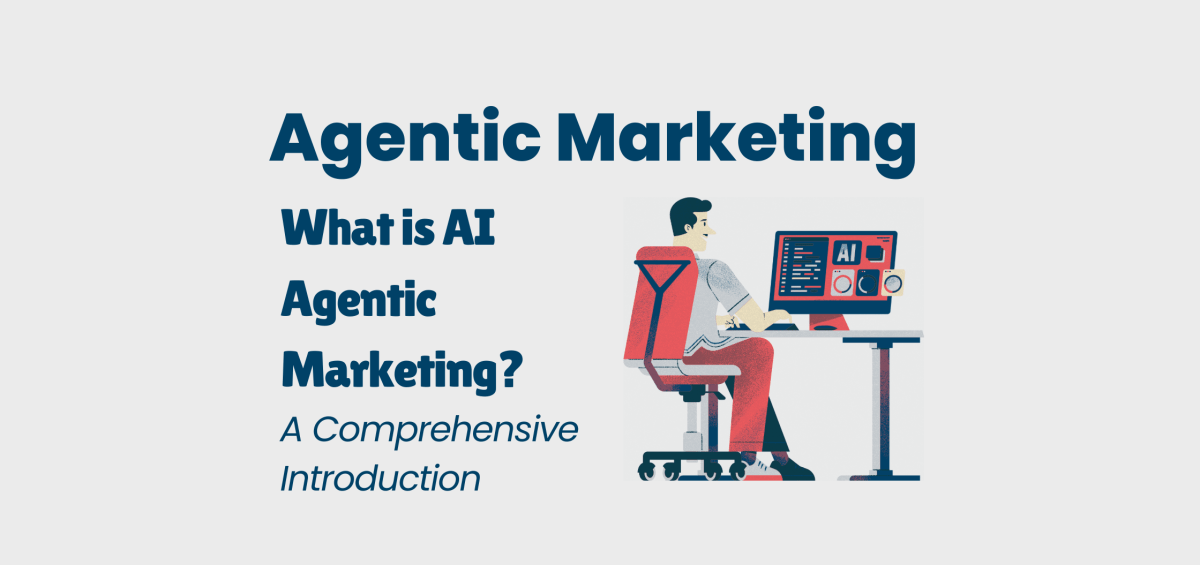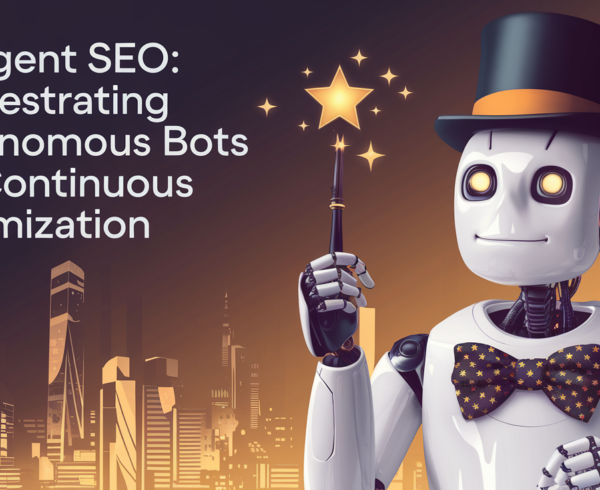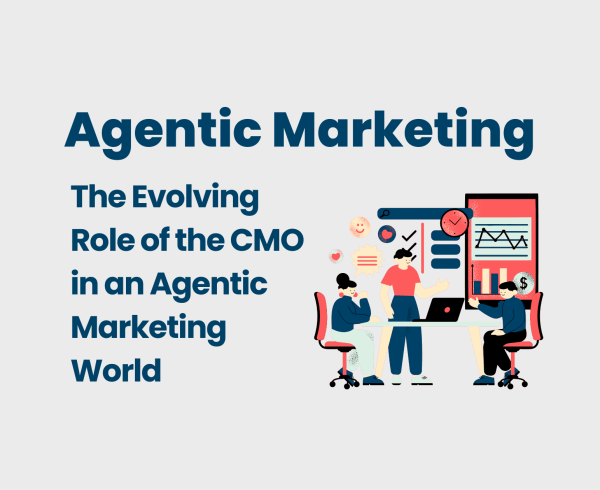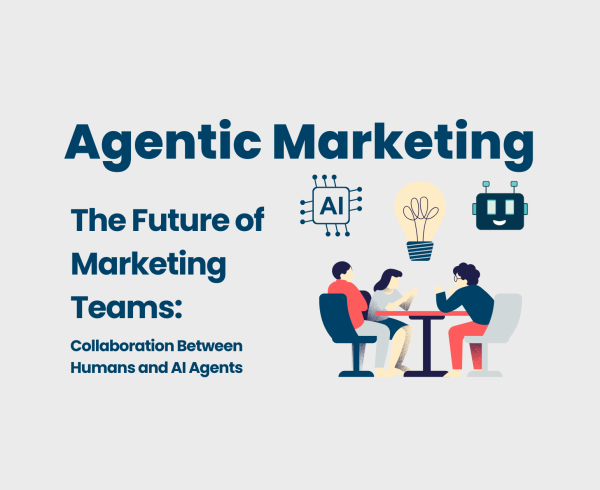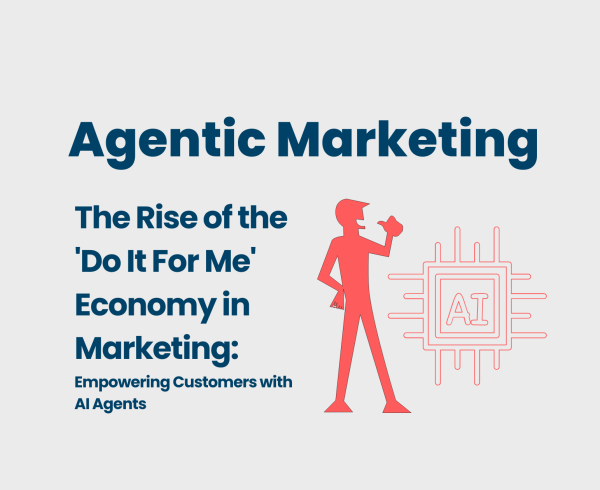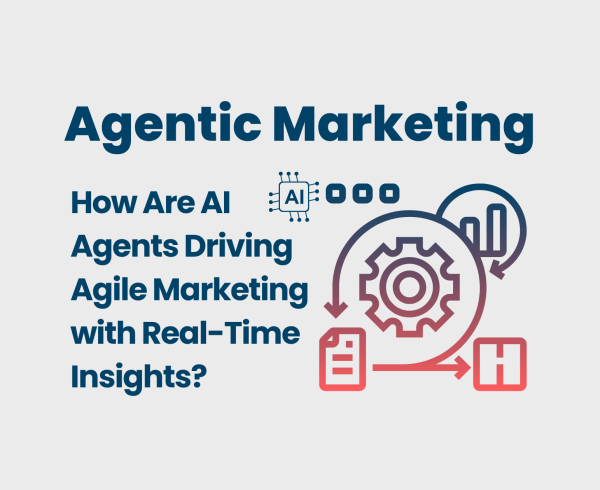The marketing landscape is in constant flux, driven by technological advancements and evolving consumer behaviors. The latest paradigm shift is the emergence of AI Agentic Marketing, a revolutionary approach that promises to redefine how businesses connect with their audiences, personalize experiences, and drive growth. This article serves as a comprehensive introduction to this transformative field, exploring its definition, core components, and the profound impact it is poised to have on the future of marketing.
At its core, AI Agentic Marketing refers to the application of Agentic Artificial Intelligence (AI) systems within the realm of marketing. To understand this, we must first define what constitutes an AI agent. According to various sources, including leading organizations like OpenAI, IBM, and Google DeepMind, AI agents are characterized by their ability to perceive, reason, and act autonomously in pursuit of specific goals. This means that unlike traditional AI tools that require explicit instructions for each task, agentic AI systems can understand objectives, strategize, and execute actions with limited human intervention.
Artificiality, a pioneering firm in the field, offers a compelling definition: agentic AI systems are those that can “perceive, reason, and act with varying complexity to extend the human mind beyond our current experience.” This definition encapsulates the essence of agentic AI – its capacity to not only automate tasks but also to augment human intelligence and creativity by handling complex, unstructured problems.
The evolution of AI agency is not a sudden phenomenon but rather a gradual progression. Early AI systems, such as IBM’s Deep Blue, demonstrated the ability to perform complex tasks within defined parameters. However, the recent advancements in large language models (LLMs) and reinforcement learning (RL) have paved the way for more sophisticated agentic AI applications. Platforms like AutoGPT and LangChain exemplify this progress, showcasing the rapid advancements in creating AI systems that can operate with a higher degree of autonomy.
The Core Components of AI Agentic Marketing Systems:
Agentic AI systems, when applied to marketing, are built upon three fundamental components:
- Perception: This involves the ability of the AI agent to understand its environment. In a marketing context, this translates to ingesting and interpreting vast amounts of data from various sources. This data can include customer interactions across different channels (website, social media, email), market trends, competitor activities, and campaign performance metrics. Advanced sensors and machine learning algorithms enable AI agents to make sense of this complex information landscape.
- Reasoning: Once the AI agent has perceived its environment, it needs to process this information to make informed decisions. This involves a combination of logical reasoning, probabilistic inference, and heuristic decision-making. In marketing, this means analyzing data to identify patterns, predict customer behavior, optimize campaign strategies, and personalize customer journeys. AI agents can leverage sophisticated algorithms to understand the nuances of marketing challenges and formulate effective solutions.
- Action: The final component is the ability of the AI agent to execute tasks based on its reasoning. In marketing, this can involve a wide range of actions, such as creating and deploying marketing content, adjusting advertising bids, sending personalized emails, engaging with customers on social media, and even modifying website layouts in real-time. These actions can be executed through pre-defined behaviors, learned skills, and adaptive control mechanisms, allowing the AI agent to respond dynamically to changing conditions.
Agentic AI Personas in Marketing:
The interplay between perception, reasoning, and action gives rise to different “personas” of AI agents, each suited for specific marketing applications and levels of complexity. These can range from simple AI aides that assist with basic tasks to complex AI wayfinders that can independently manage entire marketing campaigns. For example:
- AI Assistants: These agents can help marketers with tasks like scheduling social media posts, drafting initial content versions, or gathering market research data.
- AI Strategists: These more sophisticated agents can analyze market trends, identify target audiences, and recommend optimal marketing strategies based on data insights.
- AI Campaign Managers: These highly autonomous agents can oversee entire marketing campaigns, from planning and execution to monitoring and optimization, making real-time adjustments to maximize results.
The Significance of AI Agentic Marketing:
The emergence of AI Agentic Marketing marks a significant turning point in the industry. Its potential benefits are far-reaching and promise to address many of the challenges faced by modern marketers:
- Enhanced Efficiency and Productivity: AI agents can automate repetitive and time-consuming tasks, freeing up human marketers to focus on more strategic and creative endeavors. This can lead to significant improvements in overall marketing efficiency and productivity.
- Hyper-Personalization at Scale: By continuously analyzing vast amounts of customer data, AI agents can deliver truly personalized marketing experiences across all touchpoints. This level of personalization can lead to increased customer engagement, loyalty, and conversion rates.
- Real-time Optimization and Agility: AI agents can monitor campaign performance in real-time and make dynamic adjustments to optimize results. This agility allows marketers to respond quickly to changing market conditions and customer behaviors, leading to more effective campaigns.
- Improved Customer Experience: By providing personalized and timely interactions, AI agents can significantly enhance the overall customer experience. This can lead to increased customer satisfaction and stronger brand relationships.
- Unlocking New Levels of Creativity and Innovation: By handling routine tasks and providing data-driven insights, AI agents can empower human marketers to focus on more creative and innovative strategies, pushing the boundaries of what is possible in marketing.
The ‘Do It For Me’ Economy and Agentic Marketing:
The rise of AI Agentic Marketing also aligns with the growing trend of the “Do It For Me” economy. As consumers become increasingly overwhelmed with information and choices, they are looking for solutions that can simplify their lives and make decisions on their behalf. In this context, AI agents can act as personal marketing assistants for consumers, helping them discover relevant products and services, make informed purchasing decisions, and even manage their interactions with brands. This shift towards an agent-mediated marketplace has profound implications for how businesses will need to engage with their customers in the future.
Trust and Ethical Considerations:
As AI agents become more integrated into marketing processes, the issue of trust and ethical considerations becomes paramount. Consumers need to trust that these AI systems are acting in their best interests and that their data is being handled responsibly. Marketers, in turn, need to ensure that their AI agents are aligned with their brand values and are not engaging in unethical or harmful practices. Building trust in AI Agentic Marketing will require a focus on transparency, accountability, and robust data security measures.
Conclusion:
AI Agentic Marketing represents a paradigm shift in the way businesses approach marketing. By leveraging the power of autonomous AI systems, marketers can achieve unprecedented levels of efficiency, personalization, and effectiveness. As this technology continues to evolve, it is poised to transform the marketing landscape, creating new opportunities for innovation and growth. Understanding the fundamentals of AI Agentic Marketing – its definition, core components, and potential impact – is the first crucial step for marketers looking to navigate this exciting new frontier and harness its transformative power. The future of marketing is increasingly agentic, and those who embrace this evolution will be well-positioned to thrive in the years to come.

